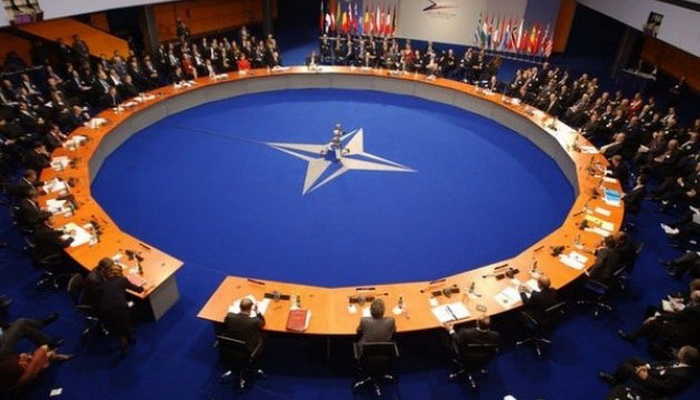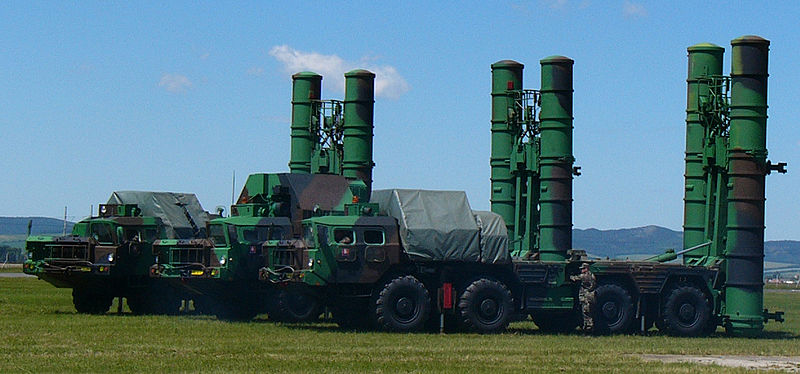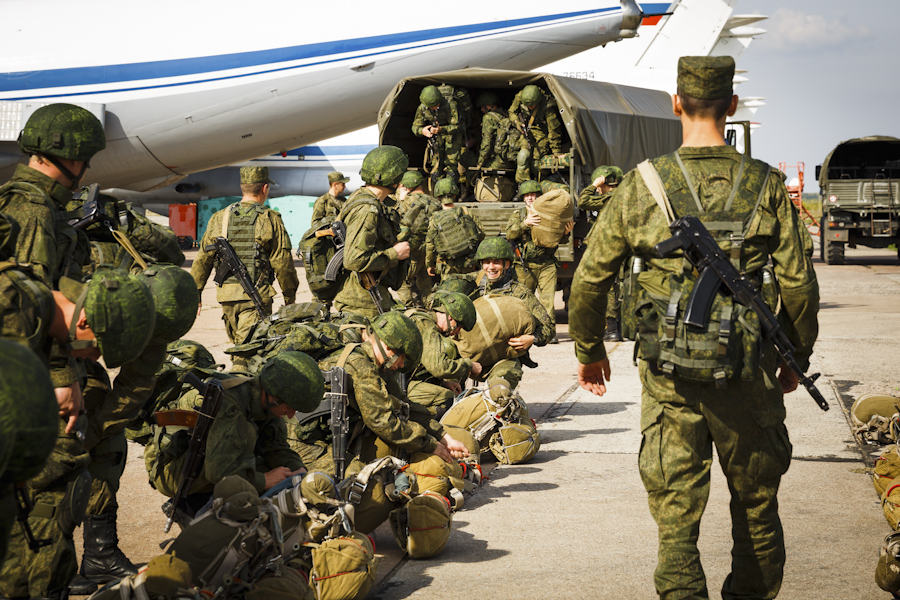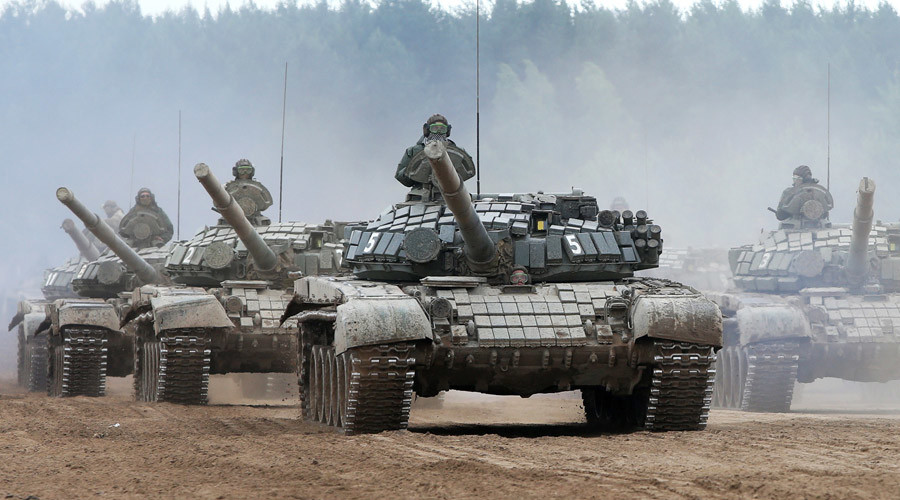NATO will support Ukraine until its complete victory over Russia and assumes that Russia’s war against Ukraine will not end quickly.
This is not a conflict we wished for, but the outcome of an increasingly more aggressive Russian foreign policy that turned into an armed confrontation. This is a war that goes beyond Ukraine. It is already a much broader conflict. The consequences of the war itself are global. The multiple and far-reaching ripple effects of the war are all on the Russian Federation.
As NATO Secretary-General Jens Stoltenberg told German newspaper Welt in an interview, NATO is determined to help Ukraine while Putin wages the war, even if it takes months or years. At the same time, Stoltenberg wants to do everything possible so that the conflict does not expand.
NATO is doing everything it can while maintaining consensus within the Alliance. That implies that the highest possible ambition is defined by the Alliance’s “weakest links”. That, unfortunately, means that its best is not enough. Not even close.
We often hear our political leaders highlight that “Ukraine is not a NATO member” and, consequently, not entitled to the collective defense the Alliance is offering its members.
Ukraine is defending European security
We do not hear them say that “Ukraine needs our assistance because it is the right thing to do”. Neither do we hear them argue that “Ukraine is defending our shared values and principles”, “Ukraine is defending European security” or that “Ukraine is fighting for democracy against autocracy”, all of which are true. The fact that they are also fighting for their sovereignty and independence does not alter the fact that its battle has global applications.
In January I argued that the likelihood of a military escalation had increased because of the lack of political courage in the West. For the lack of the Churchills and the way too many Chamberlains. Unfortunately, this is still the case. If we had only one Churchill among our Western leaders, he/she would have stated the one thing that none have said so far – but all have signed up to:
“NATO has a unique and robust set of political and military capabilities to address the full spectrum of crises – before, during and after conflicts. NATO will actively employ an appropriate mix of those political and military tools to help manage developing crises that have the potential to affect Alliance security before they escalate into conflicts; to stop ongoing conflicts where they affect Alliance security; and to help consolidate stability in post-conflict situations where that contributes to Euro-Atlantic security.”
This is a quote from the NATO strategic concept. The “war in Ukraine” – and the Russian ultimatum to NATO as of 16 December –its threatening nuclear rhetoric –its ongoing hybrid war against the West – are exactly what the concept is addressing when it stresses that the Alliance is committed to “stop ongoing conflicts where they affect Alliance security”.
In the article “NATO’s defining moment is now or never” from 27 December 2021, I asked the rhetorical questions:
If NATO does not act according to its strategic concept and fails to stop the conflict from escalating out of control undermining the security of its member states, how can it possibly argue that it is safeguarding the freedom and security of all NATO members? If it stands idle observing a conflict turn into a war at NATO’s borders, why should we believe, that the Alliance will live up to its collective defence commitment? How can NATO credibility survive without a free and secure Ukraine?
It is not possible to find the Russian aggressive foreign policy, its ongoing hybrid war against both Ukraine and the West, its ultimatums and threats, and its attempt to dismantle the international security architecture as anything but entirely unacceptable. The sum of which represents a direct threat to the freedom and security of both all NATO members and partners.
Unless forcefully rejected and reciprocated, European security is at peril. Russia is challenging NATO’s ability “to safeguard the freedom and security of all its members.” The credibility of the Alliance and its ability to deter future conflicts and wars are being put to the test.
It is time to rise to the occasion and demonstrate the resolve and courage needed. While we are not obliged to defend Ukraine, we are committed to defending ourselves. That responsibility just happens to start in Ukraine. NATO needs to help Ukraine to help us stop Russia at Ukraine’s eastern borders to safeguard our common values and principles.
Diplomacy failed
Russia’s assault on Ukraine means that more than 30 years of diplomacy failed. Equally important, it also shows that military deterrence failed. Russia started a full-scale war against a NATO Enhanced Opportunity Partner (EOP), which was subject to years of reform support and NATO integration efforts and was also one of the biggest contributors to Allied operations. While many would argue that this does not constitute a failure of military deterrence since Ukraine is not a NATO member, its hybrid war against NATO member states, including its influence operations, information war, cyber-attacks, espionage, meddling in elections and referendums, liquidation of people on European soil, bears all the signs of a country that no longer is deterred by NATO.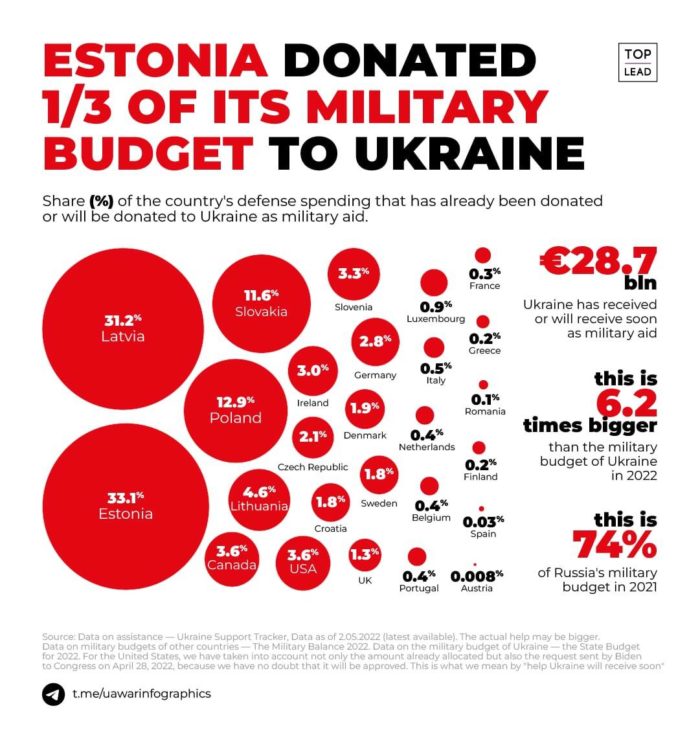
Acting contrary to NATO’s strategic concept undermines the credibility of both the USA and NATO. Other autocracies are watching us back down over the Russian threat of conventional war (without having the military capability to challenge the Alliance) and nuclear rhetoric (without having a desire for self-destruction). We are daily demonstrating risk and casualty aversion that undermines our collective security.
Today, choosing not to act according to its strategic concept has not at least many other dramatic ramifications, including unspeakable human suffering, civilian casualties, war crimes, refugee crisis, destruction of infrastructure, reduced international stability, political instability and, potential, radicalization, reduced energy and food security, increased poverty, financial instability, and much more.
“NATO is deliberately not a party to the war”, the NATO Secretary-General said.
The statement does not resonate well when we already know Russia is waging a hybrid war against the Alliance, is blaming the West for the situation in Ukraine, and is claiming we both are a party to the war and are engaged in a proxy war, trying to destroy Russia. On Monday 9 May, President Putin stressed that he “launched a pre-emptive strike at the aggression from Ukraine, the USA and NATO. In essence, he told the audience that we are at war (without formally announcing it).
According to NATO, we are not a party to the war. Russia says NATO is and it is acting accordingly.
That sounds like Collective Denial. Not Collective Deference.
More importantly, it might be a statement from an Alliance without a sustainable strategy and plan because of a lack of cohesion.
“NATO will support Ukraine until its complete victory over Russia”. The statement is of course open for interpretation. What constitutes a victory? I attempted to describe this in my morning report on 30 April as the lack of a common understanding makes it difficult to develop a joint strategy.
If we make some assumptions based on both Ukrainian, the US, and NATO statements, however, a victory means all of Ukraine must be liberated. The Russian forces need to be withdrawn from Kharkiv, Luhansk, Donetsk, Zaporizhzhia, and Kherson oblast, as well as the Crimean Peninsula. The latter is not only a question about returning the peninsula to its rightful owner but also re-establishing Ukrainian jurisdiction of its maritime exclusive zones and securing its Sea Lines of Communication for the survival of the state. Ukraine must be free, independent, and sovereign.
Ukraine has clearly stated that it is not ready to give part of its territory to Russia. President Zelensky has stated that Ukraine is “ready to restore our territorial integrity” arguing that, as the first 8 years of the war have demonstrated, compromising on territorial integrity will only encourage Russia to continue. Giving territories to Russia gives it a springboard to start new aggression in the future.
Ukraine cannot win if Russia is blocking its ports and controlling the Sea of Azov and the Black Sea. It cannot win without being able to effectively defend its airspace. And it cannot defeat a country with joint military capacities with land forces only. Ukraine needs air and maritime capacities that it does not possess. The present scope of support does, therefore, not support either Ukraine’s or NATO’s strategic objective.
Rebuilding the Ukrainian Air Force and Navy takes years even if the international community offered Ukraine a Marshall plan. Even if the weapon systems and platforms were donated or given as a part of a “lend-lease” agreement, it will take 1-2 years to qualify the personnel. Recognizing that the multiple ripple effects of the war will increase in scope and severity with time, we might find it crucial to ending the war sooner, rather than later. That will not be possible unless NATO itself is operating the combat aircraft, warships, and submarines (and more) needed to evict Russia from Ukraine and re-establish Sea Control in the Black Sea.
The present strategy only helps ensure a protracted war and increasingly massive long-term global costs, which will challenge Western cohesion and resilience.
Ukrainians stand united in the knowledge that they are fighting for their existence. They have been fighting for more than 8 years and will continue fighting for as long as it takes because they have no other choice. Their right to exist is being challenged. For Russia, having made the strategic blunder of invading Ukraine and triggering an unprecedented response from the West, this has turned into a “now-or-never” moment. If it stops, its global ambitions are lost along with Ukraine. It will, therefore, keep fighting for as long as it takes (or until defeated or it collapses).
The only one who can influence the duration and outcome of the war is NATO or a “coalition of the willing” based on its core members.
Putin’s plan: exhausting the Western resilience and support for Ukraine
The West does, however, not have the resilience of either Ukraine or Russia. Europeans and Americans are not equally united in the face of accelerating costs and far-reaching consequences of the war. We are after all, constantly being told that we are not a party to the war (that, is a battle between democracy and autocracy).
This is where President Putin finds hope for victory. He does not need to defeat Ukraine in battle. He simply needs to exhaust the European and American resilience and their support for Ukraine. President Putin is hoping for a compromise at the cost of Ukrainian independence and sovereignty. Russia is therefore already laying the foundation for a “Minsk Agreement version 3.0” based on the so-called “Peoples Republic” of Luhansk, Donetsk, Zaporizhzhia, and Kherson, or the direct integration of the oblasts into the Russian Federation.
https://twitter.com/EuromaidanPress/status/1524374531233746945?s=20&t=DreTHkJxKkjlRQao53R7_A
NATO has already told him both in words and deeds that it desperately wants to remain “detached” from the war. Boots on the ground and combat aircraft have until now been its only red lines.
Equally important, recent elections prove that the political landscape in Europe is shifting to President Putin’s advantage. On November 8 already, the midterm election will be held in the United States. 435 seats in the House of Representatives, a third of the Senate (33 seats), and local elections will be contested. The Republicans need five extra seats to get a majority in the House of Representatives and one extra seat to get the Senate. Additionally, the US presidential election is only 911 days away. We might soon see a more inward focusing and politically divided USA.
President Putin used Victory Day to rally Russia for defense against “Ukraine, the USA and NATO and their attempt to destroy Russia”. Linking the present threat and battle to WW2 he indirectly described a protracted war. That’s why he did not offer a vision, new strategy, or plan. Putin did not offer a new narrative or hope for compromise. He did not even care to talk about the progress of the war. He remained fixed on the threat, arguing that he had no other options than to conduct a pre-emptive strike and fight to defend the Motherland.
He built his case on his ultimatums to the USA and NATO of 16 December, the Western rejection thereof, and his previous claim that NATO is engaged in a proxy war with Russia. “Washington is essentially coordinating and developing military operations, thereby directly participating in military actions against our country.”
President Putin’s threat narrative is a logical continuation of his (or his cronies) earlier statements of the West waging a total (hybrid war), economic, information, and cultural war against Russia. On Victory Day, President Putin even said that he “launched a pre-emptive strike” due to the aggression from Ukraine, the USA, and NATO. In essence, he told the audience that Russia is at war (without formally announcing it).
Having been told that the sanctions as an act of aggression, Russians will see this as evidence of what the Kremlin has for years described as a threat to the Russian Federation. Having held the West responsible for de “Nazification” of Ukraine, he has even succeeded in building a (fake) bridge between the present security situation and the fundamental threat the Soviet Union was facing in 1941.
NATO must become an active party to the war to end
President Putin’s short-lived attempt for a “blitzkrieg” is reverting to what it always was: a war of attrition. The battlespace of the mind will once again become increasingly important.
The USA and NATO must face up to the fact that if they allow President Putin to continue to set the rules, we must double down for a protracted and extremely costly war. If not, it is time to get properly involved and start shaping the battlefield. If we want the war to end sooner, rather than later, we need to start adjusting our strategy and defining NATO’s rules for the upcoming fight.
NATO must become an active party to the war and help defend Ukraine from the Russian threat from both land, sea, air, and cyber.
The Alliance – or a Coalition of the Willing – must deploy maritime forces to the Black Sea and start enforcing a No-Fly Zone over Ukraine. Ukraine has proven itself more than capable of fighting the war on the ground but needs the West to fill its critical vulnerabilities and provide the joint enablers.
NATO must give Russia a heads-up and the opportunity to withdraw all its forces from all of Ukraine before the operation starts.
At the start of what must be an UN-mandated humanitarian operation limited to Ukraine according to its internationally recognized borders, all Russian forces stationed on or operating on, and over Ukrainian territory should be subject to strikes. This includes the Crimean Peninsula.
Related:
- Snyder: Ten reasons Ukraine should win the war
- Why arming Ukraine won’t cause World War Three: expert opinion
- Russian plans for Ukraine’s south: “South Rus,” “Kherson People’s Republic,” annexation
- Timothy Snyder: If Ukrainians hadn’t fought back, the world would’ve been a much darker place
- Not enough weapons, not enough Russian sanctions: opinion poll
- 12 reasons why the West should arm Ukraine, now
- Ukraine urgently needs Marshall plan and NATO presence on the Black Sea


